Impact Poverty
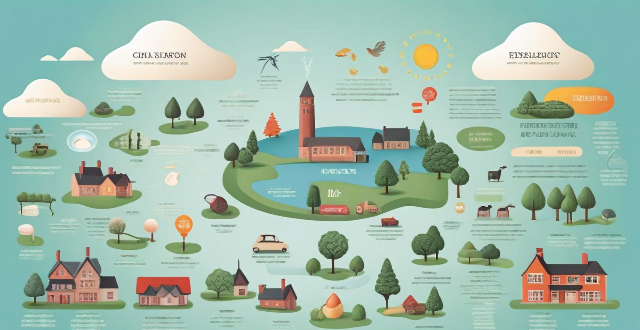
How does climate change affect poverty levels ?
The article discusses the various ways in which climate change affects poverty levels around the world. It highlights the direct effects of extreme weather events and health impacts, as well as the indirect effects on food security, livelihoods, and gender inequality. The article also suggests strategies for mitigating the impact of climate change on poverty, including investing in renewable energy sources, supporting smallholder farmers, enhancing resilience through improved infrastructure, promoting gender equality, and providing social protection programs.
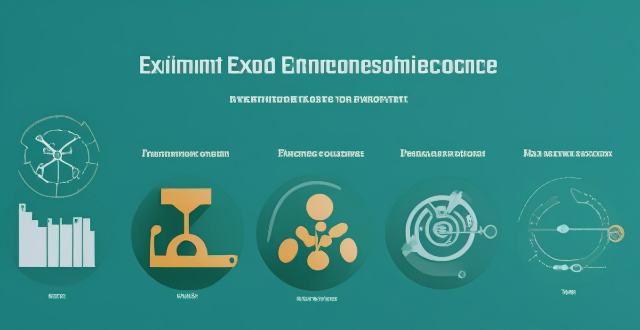
What is the relationship between climate change and poverty ?
This article examines the complex relationship between climate change and poverty, explaining how each exacerbates the other. It outlines the impact of climate change on poverty through increased natural disasters, loss of livelihoods, and health risks. Conversely, it also explores how poverty contributes to climate change through deforestation, energy poverty, and lack of resources for climate action. The article concludes by emphasizing the need for urgent attention from policymakers and individuals to address both issues simultaneously, aiming for a more equitable and sustainable future.

What is the impact of climate change on poverty and inequality, as addressed by the SDGs ?
Climate change exacerbates poverty and inequality by affecting livelihoods, food security, and displacement. Wealthier individuals and countries are better equipped to cope with climate change, leading to wider economic disparities. The Sustainable Development Goals aim to address these issues through goals related to poverty, hunger, inequality, and climate action.
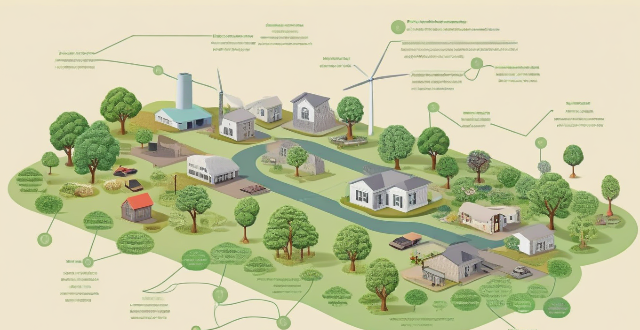
How can we address both climate change and poverty at the same time ?
Addressing climate change and poverty simultaneously requires a multifaceted approach that includes investing in renewable energy, promoting sustainable agriculture, implementing climate-resilient infrastructure, education and awareness, international cooperation, green economy initiatives, adapting to climate change, and social protection systems. By intertwining efforts to mitigate climate change with initiatives aimed at poverty alleviation, we can build a future that is both equitable and sustainable.
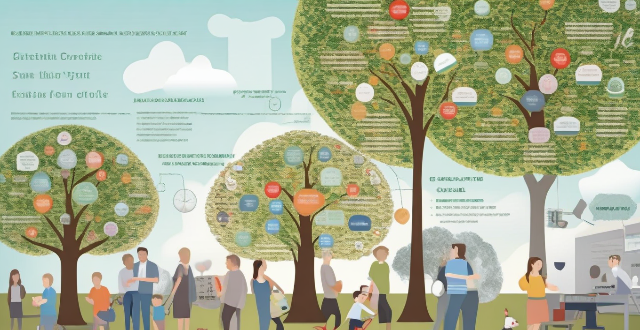
What role do international organizations play in addressing climate change and poverty ?
International organizations play a critical role in addressing pressing global issues like climate change and poverty. They bring together various stakeholders to develop strategies, set goals, provide financial assistance, and foster cooperation. These efforts aim to mitigate the effects of climate change, reduce poverty levels, and promote sustainable development worldwide.

Can the promotion of sports activities help in reducing urban poverty ?
Promoting sports activities can contribute to reducing urban poverty by improving health, providing educational opportunities, promoting social cohesion, and creating economic opportunities. However, it is important to recognize that sports activities alone cannot solve all aspects of urban poverty and should be part of a broader strategy to address this complex issue.

What are some examples of how climate change has exacerbated poverty in certain regions ?
Climate change significantly exacerbates poverty in various regions worldwide. It affects livelihoods, food security, health, displacement, and economic stability, disproportionately impacting impoverished communities. Addressing climate change is crucial for alleviating poverty.

How can we promote sustainable development while also tackling climate change and poverty ?
The text discusses a multi-faceted approach to promote sustainable development, tackle climate change and poverty. It suggests strategies such as renewable energy adoption, green economy and job creation, circular economy and resource efficiency, sustainable agriculture and food systems, conservation and protection of natural resources, and inclusive governance and partnerships. By implementing these strategies, we can work towards creating a more equitable and sustainable future for all.

How do low-income countries tackle poverty and improve the living standards of their population ?
Tackling poverty in low-income countries requires a multifaceted approach that addresses various aspects of development. Some key strategies include investing in education, promoting economic growth through foreign investment and local industry development, addressing healthcare needs by providing access to primary care services and training healthcare workers, and empowering women and girls through education, gender equality initiatives, and support for women-led businesses. By adopting these approaches, low-income countries can work towards improving the living standards of their populations and breaking the cycle of poverty.

What impact does ESG have on sustainable development goals (SDGs) ?
ESG (Environmental, Social, and Governance) is a set of criteria used by investors to screen potential investments based on their environmental, social, and governance performance. The United Nations' Sustainable Development Goals (SDGs) are a universal call to action to end poverty, protect the planet, and ensure that all people enjoy peace and prosperity. This article explores how ESG can impact achieving the SDGs in terms of reducing carbon emissions, protecting natural resources, reducing poverty, promoting gender equality, improving transparency and accountability, and ensuring access to justice. Incorporating ESG criteria into investment decisions can support projects that contribute to sustainable development and help achieve the SDGs.

How do women-specific NGOs measure their impact on reducing poverty and inequality ?
This article explores how women-specific NGOs measure their impact on reducing poverty and inequality by focusing on key metrics such as economic empowerment, education and skill development, health and well-being, and gender equality and empowerment. It also highlights successful NGOs like Women's World Banking, Room to Read, and International Planned Parenthood Federation (IPPF) that use data collection tools to track progress towards their goals.

How does climate change impact social justice ?
Climate change has significant impacts on social justice, affecting marginalized communities, health outcomes, economic stability, migration patterns, and gender equality. Mitigation efforts to reduce greenhouse gas emissions and adaptation strategies to build resilience against the impacts of climate change are necessary to create a more equitable future for all.

What are the long-term effects of ignoring the intersection between climate change and poverty ?
The article discusses the long-term effects of ignoring the intersection between climate change and poverty, including environmental consequences such as deforestation and soil degradation, social consequences such as food insecurity and health risks, and economic consequences such as reduced economic growth and increased migration. It emphasizes the importance of addressing this issue to achieve sustainable development goals and create a more equitable and resilient future for all.

How do immigration policies impact the education system ?
Immigration policies have a significant impact on the education system, affecting student diversity, resource allocation, and quality of education. Increased student diversity can be beneficial but also presents challenges for educators. Changes in resource allocation may strain budgets and impact access to educational resources for immigrant families. Challenges related to the quality of education include meeting the needs of students with varying levels of academic preparedness and addressing discrimination or bias in the education system. It is important for educators and policymakers to consider these factors when developing policies and practices related to immigration and education.

What are some successful initiatives that have addressed both climate change and poverty ?
Successful initiatives addressing climate change and poverty include renewable energy projects, energy efficiency programs, sustainable agriculture practices like agroforestry and organic farming, forest conservation and reforestation programs, green microfinance and green bonds, as well as waste management and recycling programs. These efforts not only reduce carbon emissions but also create job opportunities and improve the livelihoods of impoverished communities, contributing to a more equitable world while protecting the planet for future generations.

What are the 17 Sustainable Development Goals (SDGs) and what do they aim to achieve ?
The text describes the 17 Sustainable Development Goals (SDGs) and their objectives. The goals are: No Poverty, Zero Hunger, Good Health and Well-being, Quality Education, Gender Equality, Clean Water and Sanitation, Affordable and Clean Energy, Decent Work and Economic Growth, Industry, Innovation, and Infrastructure, Reduced Inequalities, Sustainable Cities and Communities, Responsible Consumption and Production, Climate Action, Life Below Water, Life on Land, Peace, Justice, and Strong Institutions, and Partnerships for the Goals. Each goal has specific objectives that aim to end poverty, protect the planet, and ensure all people enjoy peace and prosperity by 2030.

What is sustainable development and why is it important ?
Sustainable development is a concept that aims to meet the needs of the present without compromising future generations' ability to meet their own needs. It is crucial for addressing poverty, inequality, climate change, and environmental degradation. Sustainable development promotes economic growth, social inclusion, and environmental protection. It encourages renewable energy use, sustainable agriculture, and green technologies to create job opportunities and reduce unemployment. By ensuring access to basic services, it helps reduce poverty and improve living standards for all segments of society. Promoting gender equality is an integral part of sustainable development. It also focuses on reducing greenhouse gas emissions, adapting to climate change, conserving forests, protecting biodiversity and natural resources, controlling pollution, preventing conflicts over resources, aiding in post-conflict recovery, and reducing disaster risks. Sustainable development offers a framework for addressing complex global challenges while ensuring long-term ecological sustainability.

How does vaccine inequality impact developing countries ?
Vaccine inequality significantly impacts developing countries by affecting their public health, economy, and social stability. Limited access to vaccines increases mortality and morbidity rates, weakens healthcare systems, and leads to economic losses and limited growth. It also exacerbates poverty and inequality and can contribute to social unrest and instability. Addressing vaccine inequality is crucial for global health equity and sustainable development.

What are the effects of extreme weather events on agriculture ?
Extreme weather events such as droughts, floods, heatwaves, and storms have significant impacts on agriculture. These effects can be categorized into direct and indirect consequences, including reduced crop yields, soil degradation, crop destruction, soil erosion, heat stress, water loss, physical damage to crops and livestock, economic impacts, food security issues, environmental impacts, and social impacts such as rural poverty and migration. Addressing these challenges requires a comprehensive approach that takes into account both the immediate needs of affected farmers and the long-term resilience of agricultural systems.

How does celebrity endorsement impact consumer behavior ?
Celebrity endorsement is a common marketing strategy where a well-known individual promotes a product or service. The impact of celebrity endorsement on consumer behavior is significant and can be analyzed from various perspectives, including influence on brand awareness, perception of quality and value, trust and credibility, emotional connection and loyalty, and potential negative impact. Marketers should carefully consider the selection of celebrities for endorsements and monitor the effectiveness of these strategies over time.

How does extreme weather impact mental health ?
This comprehensive analysis discusses the impact of extreme weather events on mental health, highlighting immediate emotional responses, trauma, stress, long-term effects like PTSD and depression, community impact, and intervention strategies. It emphasizes the need for early intervention, community support, accessible resources, and resilience building to address these challenges effectively.

How do climate change and environmental factors impact virus origin tracing ?
Climate change and environmental factors play a significant role in virus origin tracing by affecting host and vector distribution, human activities, and interactions with the environment. Understanding these impacts is crucial for effective surveillance and research efforts to prevent and control infectious diseases.

How does green packaging impact consumer behavior ?
Green packaging, using eco-friendly materials, impactGreen packaging, using eco-friendly materials, impacting environmentally conscious consumers, impacts consumer behavior by attracting environmentally conscious consumers, enhancing brand image, influencing purchasing decisions, reducing waste, creating a positive shopping experience, and encouraging sustainable practices. This trend is expected to continue growing as consumers become more aware of environmental issues.

How does a Series Hybrid Electric Vehicle impact the environment ?
Series hybrid electric vehicles (SHEVs) have a positive impact on the environment through reduced emissions and improved fuel efficiency. However, challenges such as battery production and waste management must be addressed to maximize their environmental benefits. The overall impact also depends on factors like the source of electricity for charging and vehicle design efficiency.

How does network congestion impact latency ?
The impact of network congestion on latency can be significant and can have a negative effect on the overall performance of the network. This can include increased transmission time, higher drop rates, reduced bandwidth availability, and impacts on application performance. It is important for network administrators to monitor and manage network traffic to minimize the impact of congestion on latency and ensure that applications continue to function properly.

Can using a carbon footprint calculator help reduce my environmental impact ?
Using a carbon footprint calculator can help individuals reduce their environmental impact by raising awareness, identifying areas for improvement, setting goals, tracking progress, and encouraging sustainable habits.
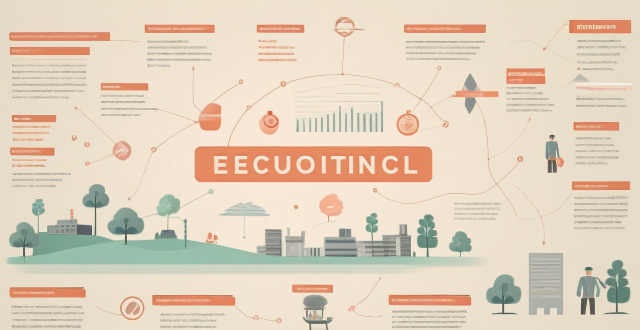
How does climate cooperation impact global economic growth ?
Climate cooperation has a positive impact on global economic growth by fostering new industries, promoting international trade and investment, stimulating innovation and research, enhancing resilience against climate impacts, and encouraging policy coherence and stability.

Are there any ethical considerations that need to be addressed before embarking on interstellar exploration ?
The text discusses the ethical considerations for interstellar exploration, including potential risks and benefits, as well as the impact it may have on future generations. The risks include the risk to human life due to harsh conditions in space, resource allocation that could be diverted from addressing pressing issues on Earth, and cultural impact promoting a culture of colonization and exploitation. The benefits include scientific discovery, technological innovation, and collaboration and peace among nations. The impact on future generations involves responsibility to preserve knowledge and ensure sustainability, as well as opportunities for new worlds and a legacy of exploration. It is crucial to carefully weigh these factors and address ethical considerations before proceeding with plans for interstellar travel.
